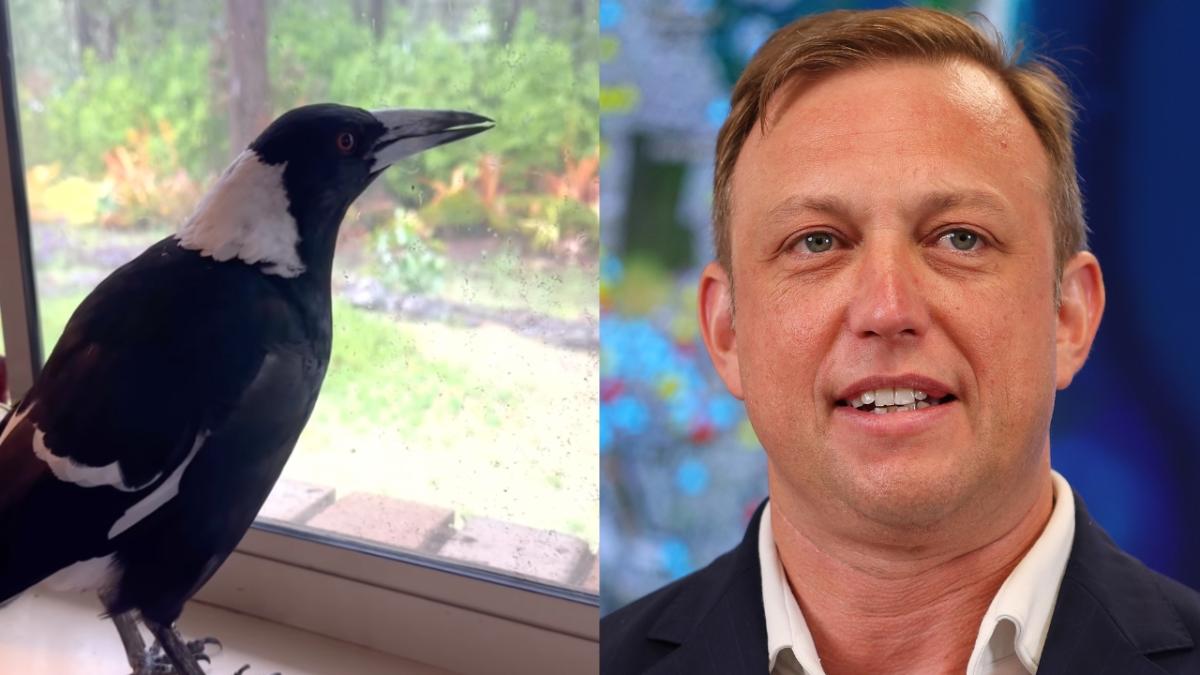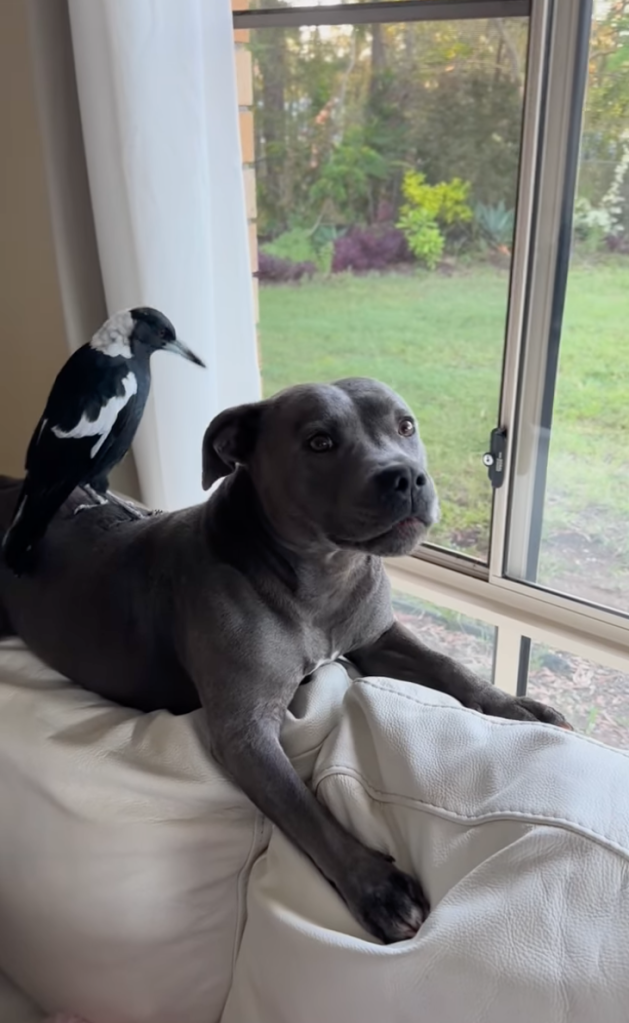
Queensland Premier Steven Miles has backed a petition to reunite a famous magpie with its former carers, after it was seized by the Department of Environmental Science and Innovation (DESI).
Molly the Magpie amassed millions of followers online after striking up a friendship with Peggy, a Staffordshire bull terrier belonging to Gold Coast couple Juliette Wells and Reece Mortensen.
The couple say they found an injured Molly in 2020 and nursed it back to health, but this week were forced to surrender the magpie to authorities after it was revealed neither of them had a permit to rehabilitate it in their home
However, the couple were forced to give the bird up to authorities earlier this week when it was revealed that neither of them had a permit to rehabilitate the animal in their home.
Despite this, Wells and Mortensen say they did not keep the magpie in their home or provide any incentive for it to stay, but the bird seemed to enjoy hanging around and kept coming back.
It seems Molly is just a fan of good company.
Now, more than 50,000 people have signed a petition to return the bird, which claims the couple and Molly share an “unbreakable bond”. The premier also put his weight behind the petition, saying he backed the campaign and encouraged officers to work with the former owners.
“I gotta say, I’ve got some sympathy for people supporting Molly the magpie,” he told media on Wednesday.
“I know our environment department, I used to be their minister. I know they take their responsibilities under the law very seriously. But I think in these circumstances, there’s room for some flexibility.
“I just urge them to work with Molly’s carers to get the necessary wildlife carer training so that she can get back home.”
However, Miles doesn’t have the power to return the bird, and the decision lies with DESI.

There’s a good reason authorities are reluctant, as keeping a wild animal can have serious effects on its ability to survive on its own and carries the risk of spreading disease.
“The purpose of rehabilitating native wildlife is to provide care so that the animal can be released back to the wild,” a DESI spokesperson said in a statement.
“When an animal is being rehabilitated, it must be done in a way that minimises humanisation and allows it to exhibit natural instincts and behaviour. Animals from the wild, must stay wild.”
The spokesperson said that the bird was now “highly habituated to human contact”, and therefore could not be released in the future.
Despite community outcry, DESI has made its position clear: it’s seeking a “suitable facility” to rehome the bird, with no intention of returning it to its former home.



